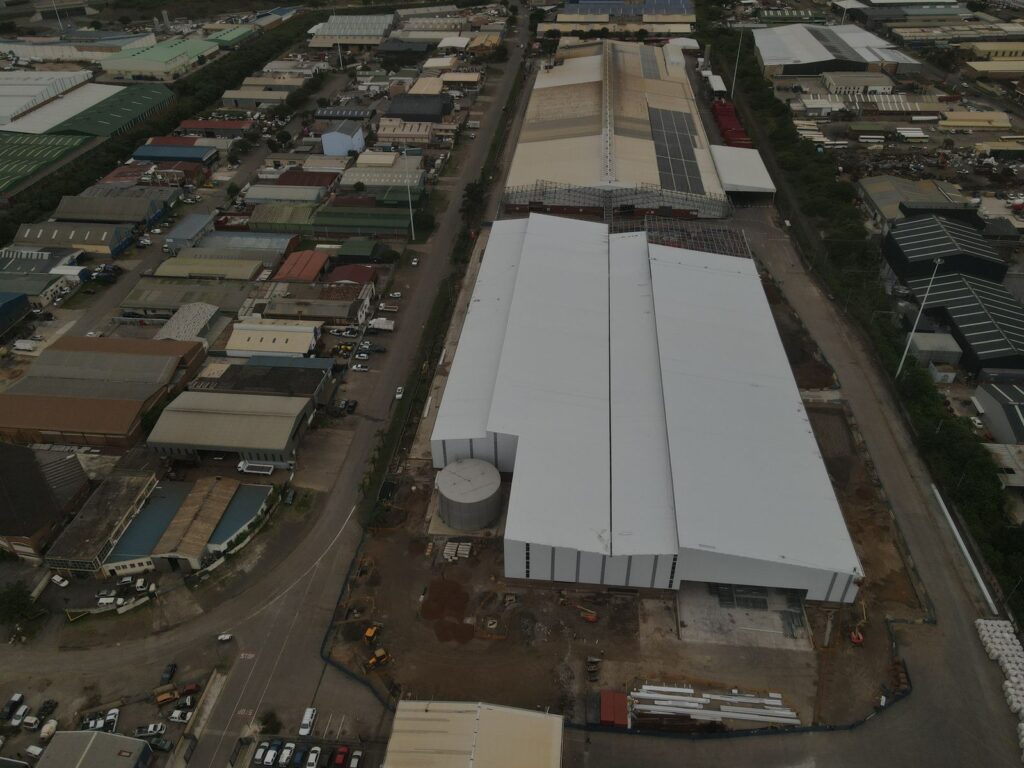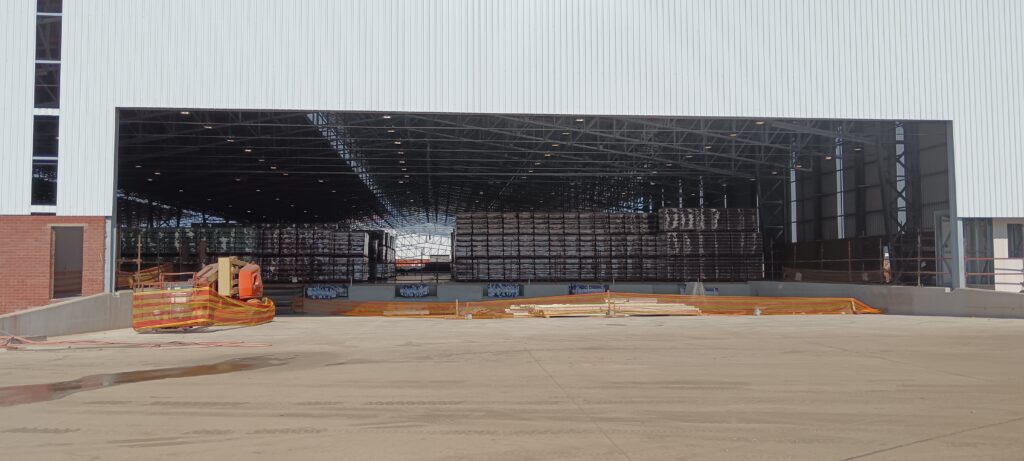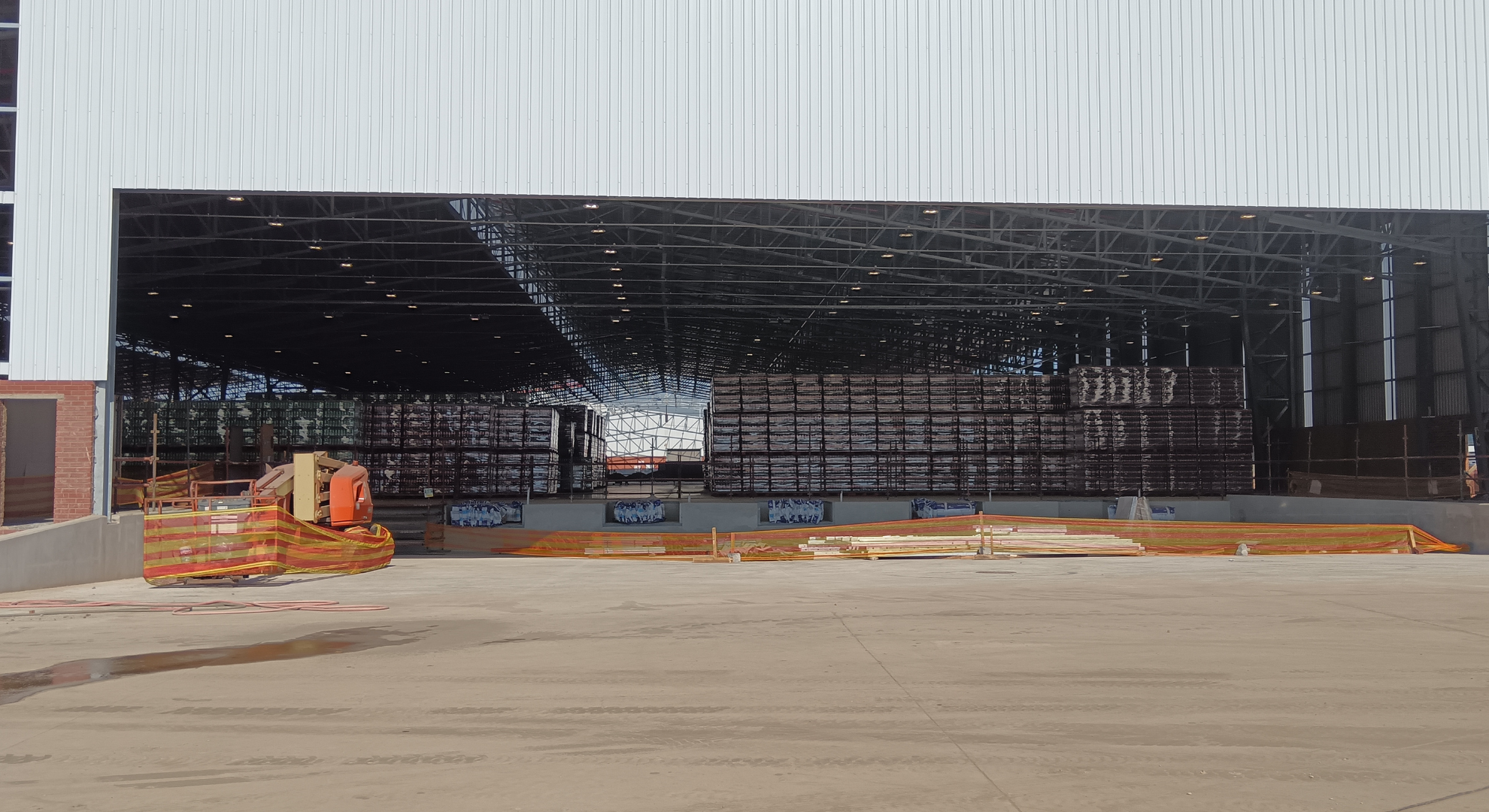An invaluable relationship-building opportunity and a successfully completed project is how Cousins Steel International (CSI) Director, Adam Oldfield, describes a warehouse and distribution centre that was recently completed for a popular beverage manufacturer at Phoenix Industrial Park to the north of Durban.
A natural progression from significant upgrades to this plant in 2016, the project got underway in 2021. From the outset, it was unfortunately plagued by hold-ups and non-delivery resulting in little progress.
In 2023, a leading consulting engineering company, with which CSI collaborates closely, was awarded the contract. CSI was a perfect fit to work with this well-respected company due to its dedication to both quality and safety.
“We were approached by the management of the consulting engineers to come on board with them to complete the project – which, for various reasons, the original contractor could not complete. We were appointed in mid-2023 to do structural steel supply and installation. There were multiple challenges from the start,” Oldfield recalls.
Recounting the first visit to site with the consulting engineers, he recalls that only 160 tons of the 800 tons of steel required for the project had been delivered: “Furthermore, only 2 bays out of the 36 in the plans were up. Just 20 percent of the requisite steel was on site – and less than 5 percent of the structure had been completed. There were also major concerns about what was had been constructed. None of the foundations were in line, the structural alignment and heights were wrong, and many structural elements were incorrect. We had to work very closely with consulting engineering company to find solutions to rectify all of this.”
The value of teamwork
Oldfield credits the ingenuity and dedication of the team – including CSI with its in-house design, engineering and fabrication expertise, the consulting engineers, project engineers – as well as the client’s project manager and MJC Industrial Roofing – for the successful delivery of the 25 000 sq/m facility.
“In terms of innovation, there were for example a significant number of issues when it came to the initial groundwork. We had to find a balance between how costly and how effective each proposed solution was going to be,” he explains.
The faulty foundation was ultimately rectified through the redesign of base plates, which had to be individually marked and placed.
The next challenge hinged on whether or not to dismantle the existing bays. “Initially, we decided to leave them and to start working at the other end of the warehouse. By the time we had progressed 200 metres, it was obvious that the structures were not going to line up. When you have alignment issues, the knock-on effect reverberates throughout the building from foundation to roof. The gutters do not align and the brick walls which tie into the steel work are too far out,” he notes.
For CSI, this challenge meant spending long hours on site and combining the flexibility of structural steel with smart engineering insights, to offer the client viable but also cost-effective and speedy solutions. Finally, when fabrication issues also emerged, a decision was taken to dismantle the original two bays.
However, the challenges on-site did not end here: “The client has a very stringent working environment, particularly regarding health and safety procedures and standards. In addition, this was a working site with delivery vehicles constantly moving in and out of it, resulting in very tight space and movement constraints from a structural steel perspective,” Oldfield explains.
Reaching the finishing line
At the end of the day, it was with great relief and pride that the team reached the project finish line, he adds.
“Looking back, when compared to a greenfield project, this probably took twice as long to complete. We are still adding some finishing touches and extras,” he points out.
Oldfield, who also heads up the SAISC’s technical committee – which is strongly focused on quality within South Africa’s steel sector – says that despite an ultimately rewarding outcome, this project once again emphasises the need for meticulous background checks to determine service providers’ true capacity and standard of work, ahead of making appointments.
Overall, he says the beverage manufacturer, which had faced ongoing challenges since project commencement, has been very appreciative of the end result: “This was a particularly challenging project to complete, given we were all drafted in part-way through and taking over a less-than-ideal situation on site. The end-client knew that the current team was doing its best, considering the substantial challenges. We are really proud to have worked alongside the consulting engineers – as well as the rest of the project team – to achieve what at the end of the day has been a fantastic result! ” Oldfield concludes.




